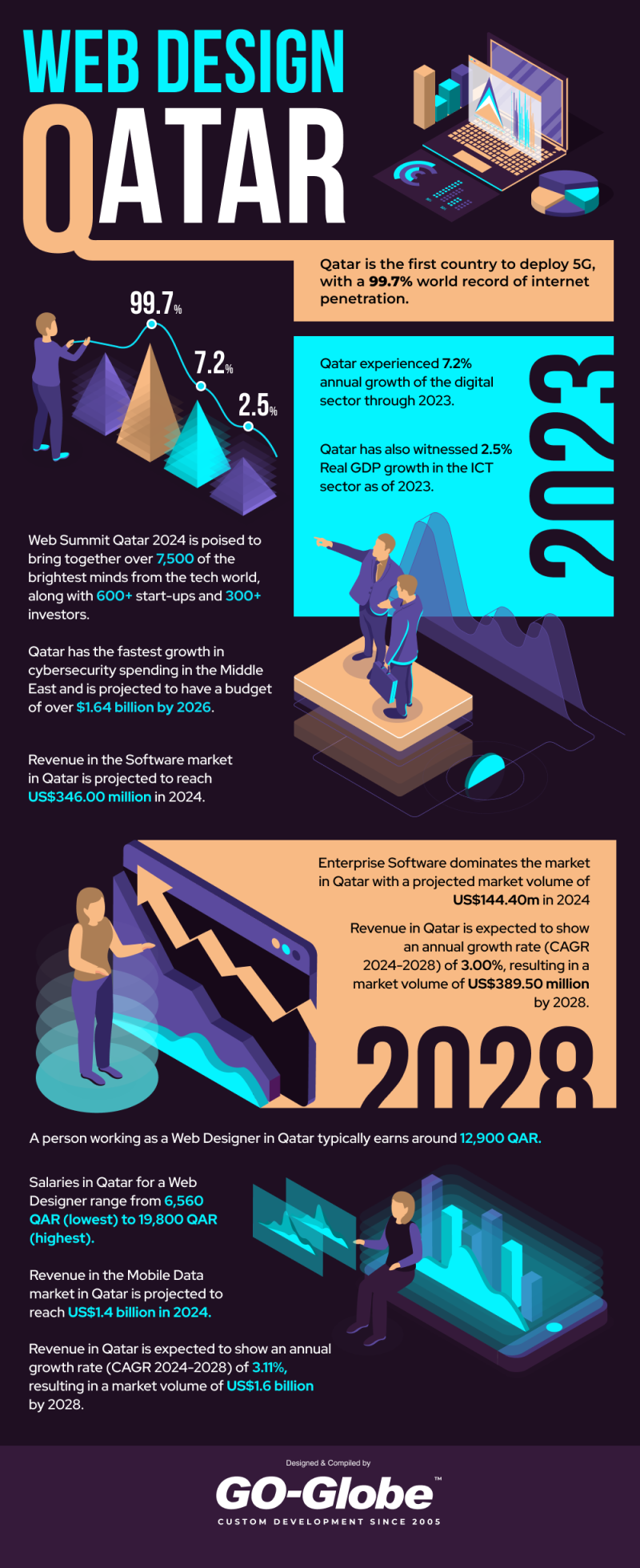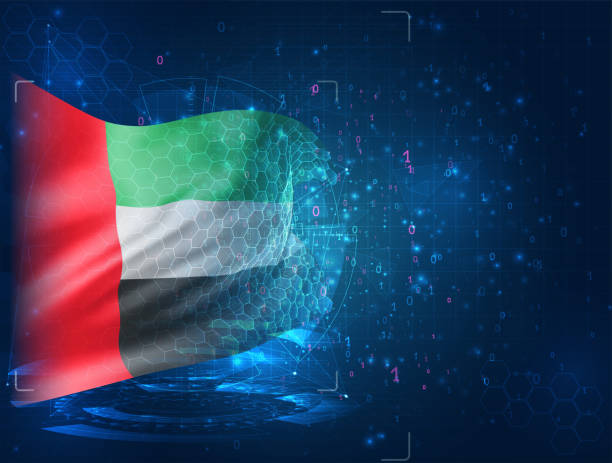Introduction
In the modern digital age, the panorama of advertising is continually evolving, driven by technological advancements and changing consumer behaviors. This change reflects that agencies are embracing digital advertising innovations to plan for the future in an aggressive market. This article explores the state-of-the-art trends and insights shaping the UAE's digital advertising marketplace in 2024.
Emerging Trends in Digital Marketing
Digital advertising within the UAE is witnessing several emerging traits that might be reshaping how corporations interact with their audience. The panorama of digital marketing within the United Arab Emirates (UAE) is continuously evolving, driven by technological advancements, client behaviours, and marketplace dynamics. Here are some of the rising traits shaping the digital advertising landscape in the UAE:
Video Marketing
Video content continues to gain traction in digital advertising strategies, with platforms like YouTube, Instagram, and TikTok becoming popular among UAE purchasers. Brands are increasingly investing in video manufacturing to interact with audiences, tell compelling stories, and showcase products and services in an immersive layout.
Influencer Marketing
Influencer marketing remains an outstanding fashion within the UAE, with manufacturers participating with social media influencers to reach their target audiences authentically. Micro-influencers, in particular, are gaining reputation for their capacity to connect with niche audiences and force engagement and conversions.
E-commerce Integration
The UAE has witnessed a speedy boom in e-commerce adoption, improved by the COVID-19 pandemic. As more customers flip to online shopping, manufacturers are integrating e-commerce functionalities into their digital advertising strategies, leveraging structures like Instagram Shopping and Facebook Marketplace to pressure sales.
Personalization and AI
I transform UAE advertising and marketing by personalising messages and offers. Real-time content customises experiences, AI assistants suggest, predictive analytics refines focus, and AI structures optimise ad relevance. Email automation tailors content material, and AI analyses social media. These techniques enhance engagement, pleasure, and loyalty, driving virtual success.
Voice Search Optimization
With the growing reputation of voice-enabled gadgets like clever speakers and digital assistants, voice search optimisation is gaining prominence in virtual advertising techniques. Brands are optimising their content and websites for voice search queries, making sure they seem to have voice search effects and meet the wishes of voice-enabled consumers.
Augmented Reality (AR) and Virtual Reality (VR)
AR and VR technology are increasingly being integrated into digital advertising and marketing campaigns to create immersive brand studies. From virtual try-on reports for style manufacturers to AR-powered product demonstrations for domestic decor stores, AR and VR provide revolutionary approaches to interact with consumers and pressure logo affinity.
Data Privacy and Compliance
With the implementation of guidelines like the General Data Protection Regulation (GDPR) and the UAE's Personal Data Protection Law, data privacy and compliance have become top priorities for digital entrepreneurs. Brands are taking steps to ensure the transparency, consent, and statistical safety of their advertising and marketing practices to construct acceptance as true with purchasers and comply with regulatory necessities.
Sustainability and Social Responsibility
Consumers within the UAE are increasingly conscious of sustainability and social obligations, influencing their purchasing choices and emblem options. Digital entrepreneurs are incorporating sustainability messaging and corporate social duty projects into their campaigns to resonate with environmentally and socially conscious purchasers.
Interactive Content
Interactive content formats, which include quizzes, polls, and interactive infographics, are gaining reputation in virtual advertising strategies for imparting attractive stories to audiences and using better ranges of interaction and sharing. Brands are leveraging interactive content to capture interest, accumulate valuable records, and foster brand loyalty.
Localization and Cultural Relevance
Given the diverse cultural landscape of the UAE, digital marketers are prioritising the localization and cultural relevance of their campaigns. Tailoring content and messaging to resonate with local customs, traditions, and languages allows brands to connect with UAE audiences on a deeper level and build significant relationships.
Impact of Social Media Marketing
Social media advertising is still a powerful tool for groups in the UAE, enabling them to connect with their target audience on a more personal level. Influencer advertising, social commerce, and network engagement are key areas in which organisations are making investments to enhance logo visibility and drive conversions.
Increased Brand Visibility
Social media systems such as Facebook, Instagram, Twitter, LinkedIn, and Snapchat have furnished corporations inside the UAE with unprecedented opportunities to enhance their brand visibility. Through strategic content material introduction, centred advertising, and influencer partnerships, brands can reach wider audiences and grow their market presence.
Engagement and Interaction
Social media advertising and marketing fosters direct engagement and interaction among brands and clients within the UAE. Through likes, feedback, stocks, and direct messages, brands can connect to their audience on a greater personal level, construct relationships, and acquire treasured remarks and insights to enhance services and products.
Driving Website Traffic and Conversions
Social media marketing serves as a powerful device for using internet site visitors and producing conversions for organisations in the UAE. By strategically sharing hyperlinks to their web sites, landing pages, and e-commerce structures, manufacturers can direct customers to take preferred actions, including making purchases, signing up for newsletters, or reserving appointments.
Customer Relationship Management
Social media systems facilitate ongoing conversation and dating management with customers within the UAE. Brands can deal with purchaser inquiries, clear up problems, and provide well-timed assistance via social media channels, enhancing patron delight and loyalty.
Brand Storytelling and Content Marketing
Social media advertising and marketing enables brands in the UAE to tell their testimonies, proportion their values, and connect with audiences via compelling content material. By leveraging multimedia formats such as videos, pictures, and memories, brands can create immersive logo experiences and evoke emotional connections with clients.
Influencer Marketing
Influencer marketing has emerged as a distinguished method of social media advertising within the UAE. Collaborating with influencers and content creators permits manufacturers to tap into their big and engaged followings, benefit credibility, and expand their reach to target audiences.
Market Research and Competitive Analysis
Social media structures function as valuable resources for market research and competitive analysis for groups in the UAE. By monitoring conversations, sentiment, and competitor sports on social media, manufacturers can gain treasured insights into customer possibilities, industry traits, and competitive strategies.
Driving Cultural and Social Change
Social media advertising in the UAE has the capability to power cultural and social trade by amplifying voices, promoting variety and inclusion, and elevating cognizance about crucial problems. Brands can use their platforms to endorse for social reasons, guide network tasks, and make contributions to positive societal effects.
Technological Innovations Transforming Digital Marketing
The panorama of digital advertising and marketing in the United Arab Emirates (UAE) is constantly evolving, driven by technological advancements that can reshape the manner in which brands interact with purchasers. Here are some of the important technological improvements that are transforming virtual advertising within the UAE:
Artificial Intelligence (AI) and Machine Learning
AI and machine-gaining knowledge of algorithms are revolutionising digital marketing in the UAE by permitting automation, personalization, and predictive analytics. From chatbots that offer real-time customer support to algorithms that optimise ad targeting and content material pointers, AI-powered answers help manufacturers supply extra relevant and tasty reviews to their target market.
Data Analytics and Business Intelligence
Advanced data analytics and enterprise intelligence gear empower entrepreneurs within the UAE to derive actionable insights from significant amounts of statistics. By studying purchaser behaviour, marketplace traits, and campaign performance metrics, manufacturers can make informed selections, refine their techniques, and maximise their return on investment (ROI) in digital advertising and marketing initiatives.
Augmented Reality (AR) and Virtual Reality (VR)
AR and VR technologies are remodeling digital marketing campaigns within the UAE through the development of immersive brand reviews. Brands can leverage AR filters, VR simulations, and interactive 3D content material to interact with consumers in unique and memorable ways, driving logo cognizance, consideration, and loyalty.
Voice Search and Smart Assistants
The rise of voice-search and clever assistants is reshaping the way clients discover and interact with brands online. Marketers inside the UAE are optimising their content and websites for voice search queries, adapting to the conversational nature of voice-primarily based interactions, and exploring opportunities to integrate their brands into voice-enabled systems like Amazon Alexa and Google Assistant.
Blockchain Technology
The blockchain era is gaining traction in virtual marketing within the UAE, specifically in areas such as security, transparency, and acceptance as true. Marketers are exploring blockchain-primarily based answers for ad verification, fraud detection, and stable statistics sharing, improving the integrity and efficiency of virtual advertising and marketing ecosystems.
Internet of Things (IoT)
The proliferation of IoT devices is creating new possibilities for manufacturers to connect with purchasers in the UAE. Marketers can leverage information from related gadgets along with smartwatches, fitness trackers, and domestic automation structures, to deliver hyper-targeted messaging, customised offers, and seamless omnichannel reports.
5G Technology
The rollout of the 5G generation is poised to revolutionise digital marketing inside the UAE by enabling faster, more reliable, and immersive cell studies. Marketers can leverage 5G connectivity to supply high-definition video content material, augmented reality packages, and real-time interactive stories that engage and pride purchasers on cellular devices.
Predictive Analytics and Forecasting
Predictive analytics and forecasting tools empower marketers in the UAE to count on client conduct, traits, and market dynamics. By leveraging predictive fashions and algorithms, manufacturers can become aware of potential opportunities, mitigate risks, and live ahead of the curve in a rapidly evolving virtual panorama.
Hyper-Personalization and Dynamic Content
Hyper-personalization and dynamic content delivery have become more and more universal in virtual marketing techniques in the UAE. Brands are leveraging facts-pushed insights to tailor messaging, gives, and studies to individual alternatives, pastimes, and behaviours, resulting in higher degrees of engagement and conversion.
Quantum Computing
While nevertheless in its early degrees, quantum computing holds the capacity to revolutionise virtual advertising in the UAE by means of solving complex troubles at remarkable speeds. Marketers are exploring quantum computing packages for responsibilities such as statistics analysis, pattern reputation, and set of rules optimisation, paving the way for more advanced and efficient advertising techniques.
Challenges and Future Outlook
Digital advertising within the United Arab Emirates (UAE) faces numerous challenges and opportunities as the landscape keeps adapting. Overcoming those demanding situations calls for a strategic approach and a willingness to adapt to the evolving digital panorama.
Challenges
Regulatory Compliance
Adherence to neighbourhood rules and compliance standards poses a project for virtual marketers in the UAE. Navigating the criminal landscape, particularly concerning facts, safety, and private legal guidelines, requires careful attention and proactive measures to ensure compliance.
Language and Cultural Diversity
The UAE is home to a diverse population with various cultural backgrounds and languages. Effective conversation and messaging techniques should account for this range to resonate with special segments of the populace and avoid cultural misinterpretations.
Competition and Saturation
The virtual advertising landscape inside the UAE is enormously aggressive, with brands vying for consumers' interest across numerous structures and channels. Standing out amidst the noise calls for revolutionary strategies, compelling content, and a deep knowledge of the target audience.
Ad Blocking and Ad Fraud
Ad blocking and ad fraud are prevalent challenges in the virtual marketing atmosphere, leading to wasted ad spend and diminished campaign overall performance. Marketers want to employ strong measures to combat ad blockading and ensure integrity in their advertising efforts.
Rapid Technological Advancements
Keeping pace with fast technological improvements is a project for marketers in the UAE. Staying abreast of emerging developments, platforms, and technologies requires non-stop learning and modelling to stay competitive in the ever-changing virtual landscape.
Future Outlook
Emergence of New Technologies
The destiny of virtual advertising within the UAE might be shaped with the aid of advancements in technologies, which include artificial intelligence (AI), augmented reality (AR), virtual truth (VR), and blockchain. Embracing that technology will permit marketers to create more immersive, customised, and impactful stories for purchasers.
Shift Towards Omni-Channel Marketing
The convergence of online and offline channels will power the adoption of omni-channel advertising and marketing strategies in the UAE. Brands will need to seamlessly combine their digital and physical touchpoints to deliver cohesive and consistent reports across the client journey.
Focus on Data Privacy and Transparency
With increasing worries about facts, privacy, and safety, the future of digital advertising within the UAE will emphasise transparency, consent, and ethical statistical practices. Marketers will want to prioritise consumer trust and compliance with regulatory necessities to construct long-term relationships with purchasers.
Personalization
Advances in statistics analytics and AI will allow marketers to deliver hyper-customised reports at scale. From dynamic content material introduction to predictive analytics, brands will leverage records-driven insights to tailor messaging and offers to individual preferences, driving higher engagement and conversion fees.
Content Quality and Authenticity
The future of digital marketing within the UAE will see a greater emphasis on content material satisfaction, authenticity, and storytelling. Brands that can create compelling, relevant, and meaningful content will seize the attention of consumers and differentiate themselves in a crowded marketplace.
Government Support and Initiatives
The UAE authorities play an essential role in fostering digital transformation and innovation within the commercial enterprise sector. Here's a look at a number of the important methods by which the authorities are fostering the development of virtual advertising and marketing inside the UAE:
Smart Dubai Initiative
The Smart Dubai initiative seeks to convert Dubai into a smart metropolis powered by virtual technology. As part of this initiative, the government is investing in digital infrastructure, innovation hubs, and smart solutions to enhance the digital competencies of businesses and facilitate the adoption of digital advertising techniques.
Free Zones and Business Incentives
The UAE gives numerous free zones and business incentives to attract overseas investment and foster financial growth. Free zones along with Dubai Internet City (DIC) and Dubai Media City (DMC) offer a conducive environment for digital advertising groups to set up their presence, providing tax exemptions, 100% foreign possession, and simplified business setup procedures.
Regulatory Framework and Guidelines
The UAE government has developed a regulatory framework and guidelines to govern digital marketing activities and ensure consumer protection. Regulatory bodies such as the Telecommunications Regulatory Authority (TRA) and the National Media Council (NMC) oversee the enforcement of regulations related to advertising, data privacy, and online content.
Digital Skills Development
The UAE government is investing in digital skills development initiatives to equip the workforce with the necessary competencies for the digital age. Through training programmes, workshops, and certifications, individuals and businesses are gaining proficiency in digital marketing tools, techniques, and best practices to drive growth and innovation.
Digital Innovation Hubs and Incubators
The UAE government supports the status quo of virtual innovation hubs and incubators to nurture entrepreneurship and innovation within the digital advertising zone. These hubs provide startups and SMEs with access to mentorship, investment, and networking possibilities, allowing them to increase and scale innovative virtual advertising solutions.
Government-led Campaigns and Partnerships
The UAE authorities collaborate with industry stakeholders and personal area groups to release authorities-led campaigns and initiatives that promote virtual marketing recognition and adoption. These campaigns increase awareness about the benefits of digital marketing, provide sources and support to groups, and pressure industry-extensive projects for boom and innovation.
Data Protection and Cybersecurity
The UAE authorities prioritise information safety and cybersecurity to create a secure environment for digital marketing activities. By enforcing robust statistics safety laws, cybersecurity measures, and compliance standards, the authorities aim to protect purchaser privacy, foster agreement in virtual transactions, and defend groups from cyber threats.
Digital Marketing Innovations Shaping the UAE's Business Landscape
- In recent years, the United Arab Emirates (UAE) has undergone a profound economic transformation, propelled by the ascent of digital marketing as a pivotal catalyst.
- Ad spending in the Digital Advertising market is projected to reach US$1,134.0 million in 2024.
- The average cost of digital marketing per month is AED 5000 to AED 15000 in 2023.
- The compound annual growth rate of digital marketing from 2020-2026 is projected at 9%.
- Digital display is projected to grow at a 15.5% CAGR, while search is projected to grow at 12.2%.
- 63% of businesses have already increased their digital marketing budgets in recent years. On top of this, 94% of small businesses plan to increase their marketing spending in 2024.
- Search accounts for 40.9% of the global digital advertising and marketing market.
- Between 2023 and 2024, there was a 10% growth rate in digital marketing budget spending across businesses.
- Digital marketing's data-driven approach provides invaluable insights into consumer behavior, allowing businesses to make well-informed decisions. The availability of real-time analytics enables continuous monitoring and optimization of marketing campaigns for better results.
- Digital marketing is the fastest growing industry. It is growing at a rate of 25% to 30% per year.
- According to a report by HubSpot, of organizations engaged in social selling, 61% report revenue growth.
- The largest market is banner advertising, with a market volume of US$429.8 million in 2024.
- The average ad spending per user in the banner advertising market is projected to amount to US$43.6 in 2024.
- In the digital advertising market, 46% of total ad spending will be generated through mobile in 2028.
- In the digital advertising market, 76% of the revenue will be generated through programmatic advertising in 2028.
- As of the beginning of 2023, there were approximately 9.38 million internet users in the United Arab Emirates, indicating a 99.0% internet penetration rate.
- Early 2023 saw a staggering 19.05 million active cellular mobile connections in the United Arab Emirates, indicating a 200.9% mobile penetration rate.
- The United Arab Emirates had a total of 10.00 million social media users in January 2023, which accounts for 105% of the country’s population.
- Over 99% of UAE residents used the Internet in 2021, and over 92% were active social media users, according to a survey by We Are Social and Hootsuite. This provides companies with a large consumer base on which to focus their digital marketing efforts.
Related: Social Media Usage In Middle East: Trends In 2023
Conclusion
Digital advertising improvements are reshaping the UAE's commercial enterprise landscape, supplying agencies with new opportunities to hook up with their audience and increasing pressure. By embracing emerging traits, leveraging technological improvements, and adapting to the evolving digital landscape, businesses can live ahead and succeed in an increasingly aggressive marketplace.
FAQs
Q1. What are some key digital marketing trends in the UAE?
A: Key digital marketing developments inside the UAE encompass personalised advertising and marketing, video content material, voice search optimisation, and the integration of synthetic intelligence.
Q2. How can businesses leverage social media marketing effectively?
A: Businesses can leverage social media advertising correctly by making an investment in influencer partnerships, social commerce, and network engagement to improve brand visibility and pressure conversions.
Q3. What challenges do businesses face in adopting digital marketing strategies in the UAE?
A: Challenges include records, private concerns, skill acquisition, and the combination of offline and online marketing efforts to supply a cohesive emblem.
Q4. How is the UAE government supporting digital transformation in the business sector?
A: The UAE government actively promotes virtual transformation inside the business sector through tasks like the Smart Dubai assignment, presenting incentives in unfastened zones, progressive guidelines, and investments in digital infrastructure. They assist startups, digitise government offerings, and foster partnerships to improve innovation, aiming to set up the UAE as an international leader in technology-driven growth.
Q5. What can we expect for the future of digital marketing in the UAE?
A: The future of virtual marketing in the UAE looks promising, with persisted growth and innovation anticipated, driven by emerging technology and evolving client behaviours.
 Mandatory Fields
Mandatory Fields




































